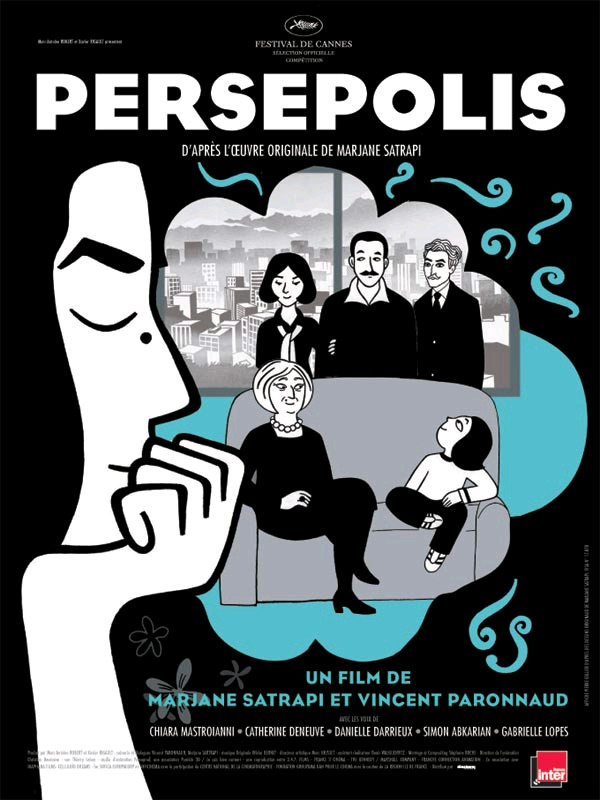 Persepolis is the autobiographical story of Iranian Marjane Satrapi, the story of how he grew up in a fundamentalist Islamic regime that would end up out of their country. The cartoon begins from 1979 when Marjane is ten years old and from the perspective of a child is witness to social change and political ends more than fifty year reign of the Shah of Iran and Persia gives way to an Islamic republic .
Persepolis is the autobiographical story of Iranian Marjane Satrapi, the story of how he grew up in a fundamentalist Islamic regime that would end up out of their country. The cartoon begins from 1979 when Marjane is ten years old and from the perspective of a child is witness to social change and political ends more than fifty year reign of the Shah of Iran and Persia gives way to an Islamic republic .The story of illustrious ancestors (his great grandfather was the last king of the Persian dynasty of the Qadjar), a family that is actively opposed the Shah's government, events, social class differences or the marginalization of the girl are some of the pieces of the puzzle that Marji strives to compose with the aim of understanding the world around her. While it grows, Marjane realizes that the new Islamic regime who fought by their parents has fallen into the hands of the fundamentalists and that does not bring anything good.
Persepolis's second album takes the period from 1980 to 1984 and has as background the war between Iran and Iraq in the mid-eighties and the beginning of his adolescence, where we will see, for example, his fondness for music groups banned by the regime Islamic, and some of the problems that already gets a young age by his rebellious nature. The third album focuses on the many hardships and adventures that will live life the author in Austria between 1984 and 1989, where it is sent to live by their parents to protect both the bombing as the legal problems that could end up continuing with their behavior, not always suited to the habits advocated from the Islamic government. The fourth and last presented his return to Iran, a time when she studied fine arts in Tehran and after living in Europe several years we have to explain how to get used to new life under the regime of Shiite ayatollah.
 On June 27, 2007 was released in France the film that the animation fits the comic book's first two albums, co-directed and co-written between Satrapi and Vincent Paronnaud own. The animation is done entirely in black and white, and has in the French version with the voices of Catherine Deneuve (admirer of Satrapi's work) and her daughter Chiara Mastroianni, in the roles of Satrapi's mother and self-protogonista respectively. On the occasion of the presentation of the film in official selection at Cannes in May 2007 (something that has not sat well with the Iranian authorities.) The film finally won the Special Jury Prize at the 2007 Cannes Film Festival in France in the 2008 César Awards won awards for Best First Film and Best Adaptation (and received four other nominations) and the U.S. was nominated at the Oscars 2008 Award for Best Animated Film (which eventually won Ratatouile).
On June 27, 2007 was released in France the film that the animation fits the comic book's first two albums, co-directed and co-written between Satrapi and Vincent Paronnaud own. The animation is done entirely in black and white, and has in the French version with the voices of Catherine Deneuve (admirer of Satrapi's work) and her daughter Chiara Mastroianni, in the roles of Satrapi's mother and self-protogonista respectively. On the occasion of the presentation of the film in official selection at Cannes in May 2007 (something that has not sat well with the Iranian authorities.) The film finally won the Special Jury Prize at the 2007 Cannes Film Festival in France in the 2008 César Awards won awards for Best First Film and Best Adaptation (and received four other nominations) and the U.S. was nominated at the Oscars 2008 Award for Best Animated Film (which eventually won Ratatouile).








No comments:
Post a Comment